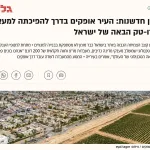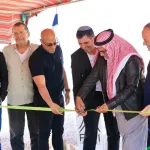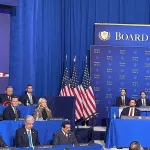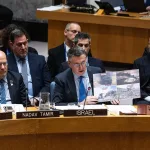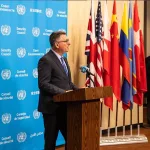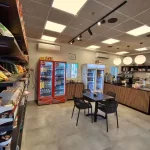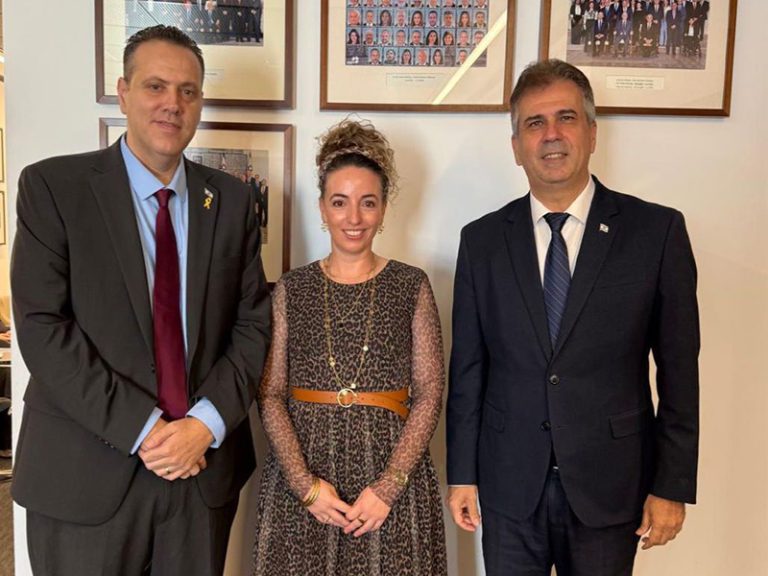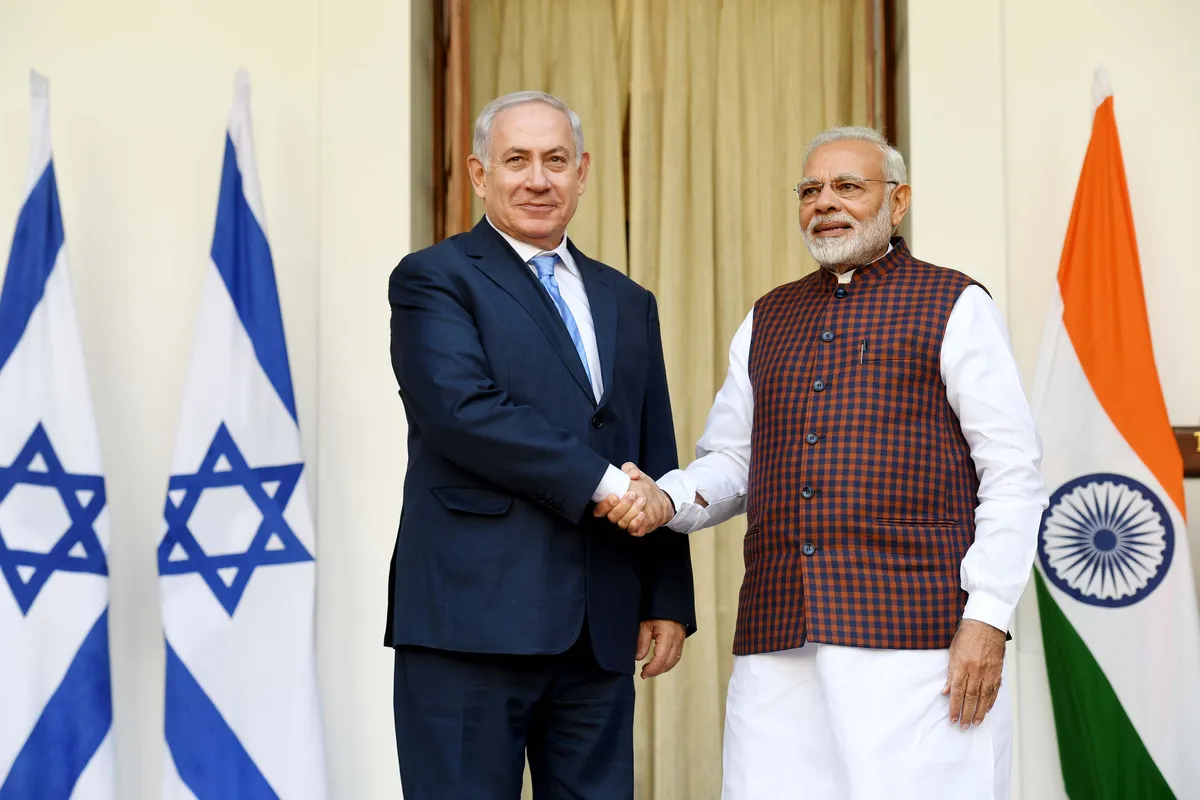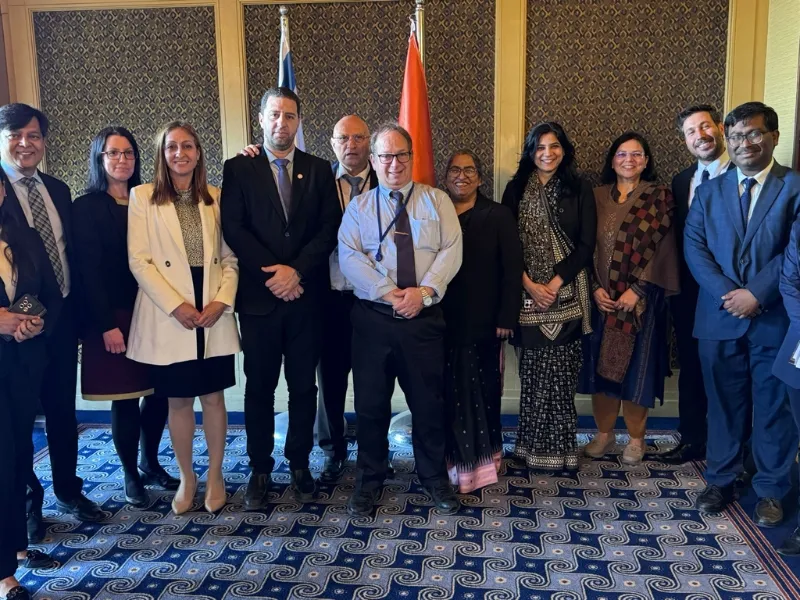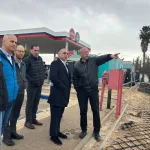The Government of Israel has recently approved a new national program to promote the installation of solar roofing on public sports facilities across the country. As part of this decision, a dedicated budget of 34 million ₪ will be allocated in 2025 to support local authorities in implementing solar canopy projects. In addition, a three-year exemption from construction permit requirements will be granted to water corporations for these initiatives. Further regulatory relief measures are also being advanced to ease procedures and incentivize the development of solar roofing infrastructure.
Minister of Energy and Infrastructure Eli Cohen: “Solar canopies over sports fields are an important step that fulfills our commitment to ensuring energy security for Israel, while promoting renewable energy and protecting the environment. This move will enable local authorities to turn an expense into a yielding investment, add thousands of dunams of public shaded areas, allow community activity in all weather, and contribute significantly to meeting Israel’s renewable energy targets for 2030. I thank our partners at the Ministry of Culture and Sports and the Ministry of Environmental Protection for their cooperation in promoting this important step for the benefit of all citizens of Israel.”
Minister of Culture and Sports Miki Zohar: “This is an innovative and necessary step for the public’s benefit. Community sports fields are a central place for gathering, for various types of sports games, and especially during the summer months and holidays, they serve the community, families, children, and everyone who loves sports. The new program – covering the fields – will provide an important need that will allow everyone to enjoy the fields both in summer and in winter, maximizing the use of the area for energy and electricity production. This is another step in the policy of making sports fields accessible, while getting the most out of them in all weather and all seasons of the year. The sports fields will be attractive and useful. I thank my colleague Minister Eli Cohen and my colleague Minister Idit Silman for the fruitful cooperation on a strategic move that connects the values of sport with innovation and the environment.”
Minister of Environmental Protection Idit Silman: “Solar canopies over sports fields are an important environmental-social initiative that promotes clean energy, reduces air pollution, mitigates the urban heat island effect, and improves residents’ quality of life – especially in the heart of urban spaces. This is a smart utilization of public infrastructure, connecting climate goals with community resilience, and is on the path to the national target of 30% renewable energy by 2030. Furthermore, this is a practical and significant step in addressing the climate crisis and global warming – projects of this type contribute to reducing greenhouse gas emissions and enable smart adaptation to the changing climatic reality. I thank the Minister of Energy and Infrastructure Eli Cohen and the Minister of Culture and Sports Miki Zohar for their full partnership in advancing this innovative initiative, which connects a healthy living environment, community and sports activities, and a sustainable energy future.”
The government’s decision is based on a policy document written by the Ministry of Energy and Infrastructure and now published for the general public: Solar Canopies for Public Sports Fields Across the Country, for the Benefit of the Environment, the Community, and the Local Economy.
The document, formulated by the Sustainable Energy Division within the Ministry, reveals a significant national potential inherent in a simple initiative: transforming public sports fields into multi-purpose infrastructures that generate clean electricity, provide quality shade on the fields throughout the day and in all weather conditions, and contribute to the income of local authorities.
Initial analysis of the document points to extensive national potential: over 3,500 sports fields are spread across Israel. It should also be noted that previous work carried out by the Ministry of Environmental Protection and the Ministry of Energy to analyze the solar production potential of sports fields (and other built-up areas) shows a real potential of hundreds of megawatts within urban centers. Solar canopies over these fields could yield approximately 500 megawatts of installed capacity – about 5.5% of the additional capacity needed to reach the national target of 30% renewable energy by 2030.
Beyond its contribution to the energy sector, this is also a considerable social-environmental initiative – adding approximately 3,000 dunams of public shaded areas that will allow for an additional 3.3 million hours of community and sports activity per year, in all weather conditions and at all hours of the day. Furthermore, it’s a concrete step in addressing the climate crisis and global warming, by reducing polluting emissions and increasing the scope of renewable energy in built-up areas.
The document’s initiators emphasize the need for inter-ministerial and inter-sectoral cooperation – between government ministries and local authorities – to realize the potential in Israel’s sports fields. This cooperation aims to transform existing infrastructures into hubs of community activity, clean energy, and economic anchors for local authorities.
The document, for the first time, maps out the full range of economic, regulatory, and planning barriers in the field – and proposes a set of feasible and diverse solutions, including:
- Establishing a dedicated funding track to support solar canopies for local authorities
- Regulatory adjustments that will shorten planning processes and ensure market certainty
- Measures to increase awareness and accessibility of information for authorities and the public.
The ministries will continue to work towards realizing the great potential and advantages of renewable energy production in built-up areas adjacent to consumption centers, thereby steadily increasing the scope of renewable energies in the economy.

